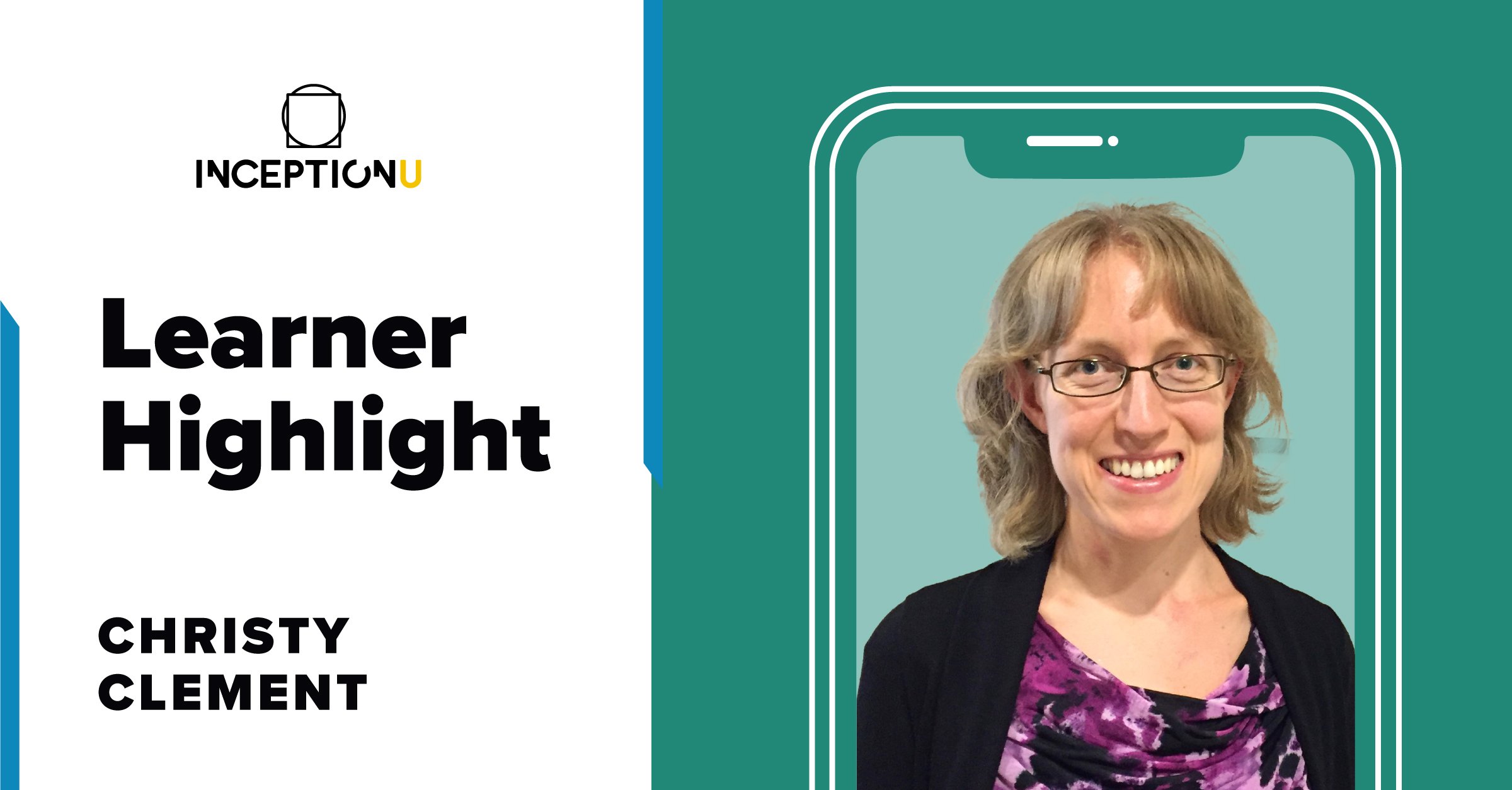A Day in the Life of an InceptionU Learner
This is a guest post written by Christy Clement, a recent graduate of the Evolve Full Stack Developer program.
I recently completed Cohort 6 of InceptionU’s 6-month full-stack developer program, finishing in August of 2021. Even though I had completed the recommended prep work first, it was a pretty intense and challenging program. Luckily, it was one of the most supportive environments I’ve experienced!
Due to COVID, our cohort’s classes were entirely held on Zoom, which I actually liked. People had their cameras on most of the time, which helped with getting to know each other. I also enjoyed seeing pets, plants, kids, balcony views, kitchens, and guitar collections in the background.
Normally, I’m a big fan of my snooze button, but during the program I actually found it easy to wake up early because I was excited about what we would learn that day. Over breakfast, I liked to get caught up on LinkedIn, tech Twitter, or tech podcasts, just to feel a bit more connected to the community. Then, it was time to dive in for the day!
“ I found each breakout session valuable for getting to know my classmates better and building a sense of trust.”
There wasn’t really a typical day during the program. There were daily classes for approximately the first half of the program, in addition to individual and group project work.
I really enjoyed the tech classes, because there was so much to learn and apply to our own projects. It was sometimes hard to follow along, but the instructors were open to questions and classmates would also jump in to help out via chat whenever they could.
We also had essential skills classes, and my favourite part about those was being split into breakout rooms for small group discussions. Sometimes the topics were uncomfortable, and sometimes we didn’t stick 100% to the topic, but I found each breakout session valuable for getting to know my classmates better and building a sense of trust.
I also really enjoyed the visual thinking classes, which were optional. I kind of felt like a little kid in art class, playing with markers and showing off my drawings to the class (everyone was so encouraging).
I liked leaving my lunch breaks free for walks and/or naps, so I usually ate my lunch during class. Getting outside and away from the computer was great for clearing my mind and resting my eyes.
“I soon learned that taking regular breaks could help me stay more focused and productive.”
During the second half, the program transitioned to mostly self-directed learning with our project teams. This is where we dove deep into project-based learning, which was less structured and sometimes a bit frustrating as we adjusted to the process.
For our final project (the last 3 months), my project team and I had daily morning standup meetings with our scrum master to discuss our progress on each task, as well as anything that was blocking us. These daily check-ins were useful for keeping us productive and on track. We also met with our product owner and client every week to demo the project and decide on additional features.
We never had any sessions scheduled after about 4 pm, but many of us worked at least part of every evening and often on the weekends as well. I also spent time working through YouTube or Udemy tutorials to get a better understanding of particularly tricky topics, or to learn topics not covered in class.
I was very dedicated to the program (possibly a bit too much) and part way through felt pretty burnt out. It was a good wake up call for me and I soon learned that taking regular breaks could help me stay more focused and productive. It also highlighted the importance of reaching out to others when I needed help.
Christy compares a career pivot to jumping off a cliff - scary, but wildly rewarding.
“I felt safe asking questions, trying new things, and making mistakes.”
One of my favourite discoveries during the program was how willing most people are to help others. At the beginning, I wasn’t very good at asking for help, and I ended up feeling lost and a bit disconnected from the group. When I finally started reaching out to others, it made a huge difference. I felt safe asking questions, trying new things and making mistakes. It was so helpful to get other perspectives when solving problems, and it was also great practice for asking clear questions with the right amount of detail.
There were scheduled office hours and help desk sessions several times a week, which were great. Outside of these hours we were encouraged to reach out for help in our cohort’s Discord server, where someone was almost always available (I got midnight help at least twice). In addition to getting technical guidance, I also appreciated getting to know other students and sharing our struggles. It was a great confidence boost when we could help each other, and when we couldn’t, we could at least commiserate over the same problem together. We also had the chance to speak with some alumni from the program, and it was helpful to see that they’d faced similar challenges to us but had made it through successfully.
Most days, I went for a late-night walk to wind down (and occasionally had to rush home for a late-night team meeting). I tried not to work on anything requiring too much thought right before bed, because sometimes I would wake up in the middle of the night with an idea I just had to try right away in my code.
Ah...the life of a developer!
Please feel free to connect with me on LinkedIn. I’m happy to tell you more about my experience at InceptionU!


